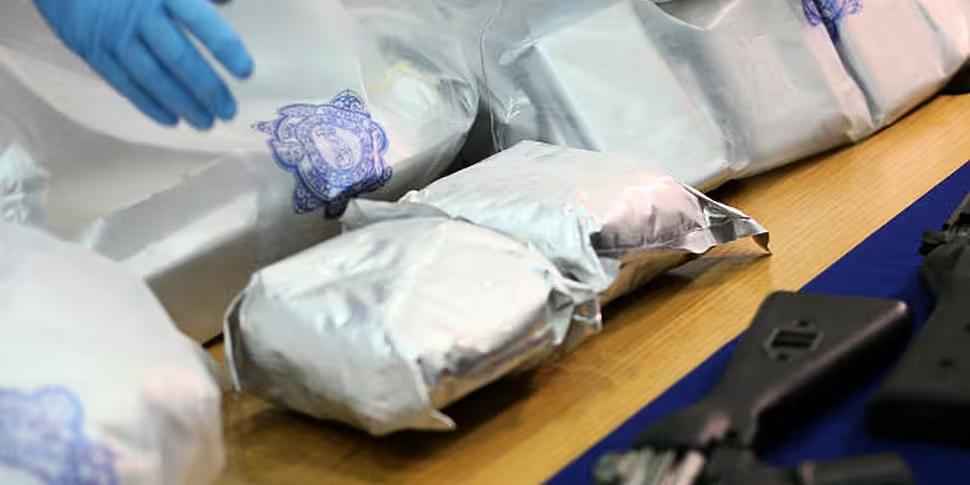A new report from the EU examining the effects of the global drug trade has found a number of international drug gangs operating here in Ireland.
The 2016 EU Drug Markets Report also highlights strong connections between Irish drug gangs and major cartels in Central and South America.
The research shows that more than €24 billion a year is spent by EU citizens on illegal drugs, and analyses the costs of the drug market for society and communities.
The report also states that Ireland had the highest recorded level of use of psychoactive substances in Europe last year - with 9% of Irish respondents in a European survey of 15–24 year olds saying they had used such substances.
Dr Johnny Connolly, visiting research fellow at the School of Social Work and Social Policy at Trinity College, spoke to Newstalk Breakfast about the report - and argued that current efforts to tackle the illicit drug industry are "simply not working".
"What's probably most significant about this report... it really does raise major questions about the so-called war on drugs and the effectiveness of it," he argued. "We are sort of weathered to this approach that doesn't seem to be having a massive impact on what is being consumed, and what is being used.
"This is the second report of its type that has been produced... to try and put a bit of a sense on this market and the scale of this market".
Dr Connolly pointed out that once there is demand for drugs, there will be supply given the scale of the potential profit. The trade impacts massively on people in countries where the drugs are produced - but also in the communities where the substances are consumed.
"The people who are often most affected negatively by the drugs trade are the people in the producing countries - be they Columbia for cocaine, be they Afghanistan for heroin. And the people who are most affected at the demand side are people in marginalised and deprived communities where you have drugs-related deaths and addiction," he observed.
'Virtual market'
As well as the international 'physical' drugs market, there is a new virtual dimension, with illicit drugs and mind-altering substances being traded online.
"You've got a problem that is such a vast scale, and that seems to becoming increasingly sophisticated - and increasingly difficult to detect from a law enforcement perspective," Dr Connolly observed.
There already seems to be a move towards shifting tact in the 'war on drugs' - although the debates around the subjects are likely to prove controversial.
"Decriminalisation will not remove the drugs trade - ultimately you have to then begin talking about regulation, about legalisation... and you have to talk about harm reduction," Dr Connolly suggested.
"We are beginning that debate here, which is very positive - talking about drug consumption rooms, or safe injecting facilities, for people who are addicted [and] with serious health problems".
On the subject of tackling gangs involved in the distribution of drugs, Dr Connolly argued "when you take somebody off the street, sometimes that can even have a counterproductive effect, because it can destabilise a market and create more violence as more people try to fill the gap. There's money being made, and it's often being made in places where there often aren't many other sources of income.
"You have to look more in depth at it. I think you have to step back, try not to get so emotive about it, and look at it rationally," he concluded.









